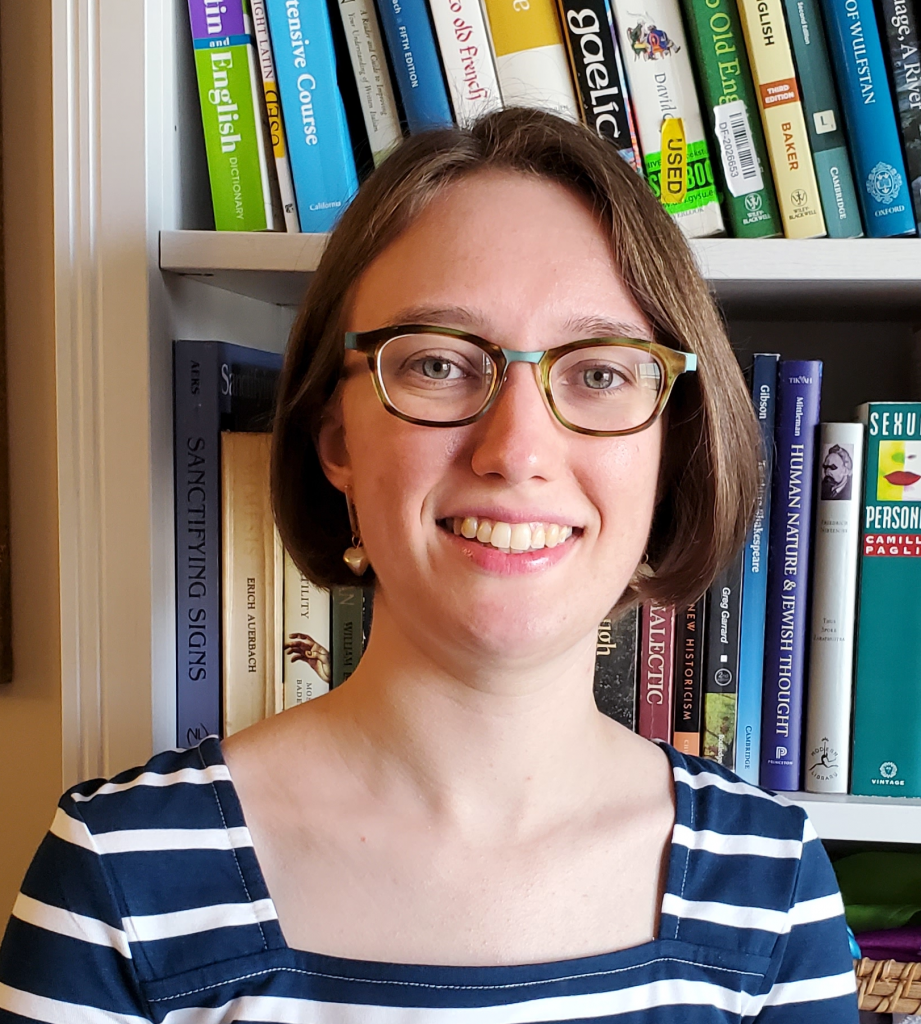
The story of Adam, Eve, and the Fall from Eden is a foundational narrative of the Abrahamic religious traditions. So central is this story to an understanding of why suffering exists in the world that John Milton wrote Paradise Lost to justify God’s hand in it. The Fall and its consequences were also of interest to medieval writers and theologians, most notably the authors of a group of popular texts from the fourteenth century referred to collectively as The Lives of Adam and Eve.
Harley Campbell, a doctoral student who specializes in medieval literature, has long been interested in the role of religion in that period’s literature and culture. Her dissertation focuses on medieval retellings of the Eden narrative and the particularly human dimension these apocryphal accounts provide.
“It’s quite different from what you get in the Bible,” she said. “It’s similar to a lot of other medieval and early Christian texts for lay people: trying to explain the things that weren’t very well explained in the original Biblical text.”
One of the questions these accounts emphasize, she argues, is what it means to live in a frail, imperfect human body in the world that exists after the Fall from Eden. In the words of The Mirror of Human Salvation, a popular theological work from the early 1300s, “The world promises [Adam] lasting health, but introduces the body and soul to perpetual infirmity.”
Positioning her dissertation in the expanding field of feminist medieval studies, Harley is particularly interested in the figure of Eve. Condemned to bear children in pain and suffering, she expresses her agony, fear, and loneliness when giving birth in the Lives. Harley sees a connection between this concern with women’s bodies in medieval theology and contemporary issues of women’s rights, such as the decree in Iran that women’s heads must be covered in public.
“I’m trying to understand how medieval people use these spinoffs of the Bible to reconcile the religious view of the body with the everyday experience of living in a human body.”
Harley’s accomplishments and promise as a scholar have earned her one of the university’s prestigious YATES Dissertation Fellowships and the Anne Marie Van Hook Travel Fellowship from the university’s Marco Institute. Marco and UT’s other interdisciplinary resources in medieval studies are two of the things that attracted Harley to the English doctoral program after completing her MA at the University of South Florida. The department’s supportive environment is another.
“I consider myself very fortunate to be able to teach and research and learn and do all the things that we’re able to do here.” As she deepens her study of the Fall from Eden, in other words, Harley can’t imagine a better place to do it.